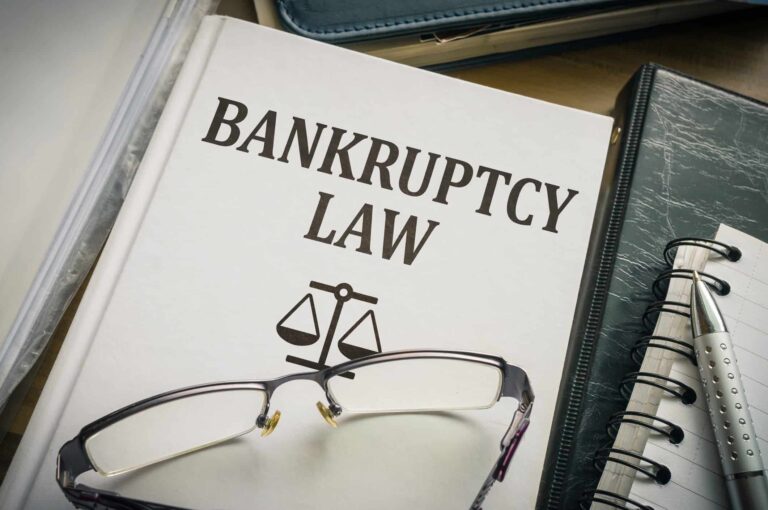13 Questions To Ask A Bankruptcy Attorney At Your Consultation

If you’re filing for bankruptcy, the right attorney can make all the difference. Attorneys are often willing to provide a free initial consultation to help you determine whether the services they offer are a good fit for your needs. Take advantage of these opportunities by asking the right questions.
To get the most out of a consultation, prepare ahead of time by identifying what you need to know in order to decide whether an attorney is right for you. To aid your planning, here’s a list of thirteen questions to ask a bankruptcy attorney during your initial meeting and consultation.
1. Is filing for bankruptcy a good idea for me?
A skilled attorney should be able to recommend one or more specific courses of action to you based on your particular situation. They should also be able to explain general bankruptcy procedures in a clear manner. They will talk to you about Chapter 7 and Chapter 13 bankruptcy and thoroughly describe the differences between these two paths, as well as the implications of choosing one over the other. They should be able to provide a convincing, understandable rationale for any recommendations they offer.
Request a free consultation with a bankruptcy attorney in Las Vegas today.
2. What are the pros and cons of filing for bankruptcy?
You should hire an attorney who’s able to provide you with a realistic, detailed picture of the advantages and drawbacks of declaring bankruptcy. Avoid someone who focuses exclusively on either perspective or gives you a short, general answer.
A prospective attorney should be able to identify any debts you’d still be responsible for paying after filing for bankruptcy, as well as the short- and long-term implications of filing under Chapter 7 versus Chapter 13. An attorney should also be able to describe the positive and negative consequences of filing for bankruptcy versus choosing not to file for someone in your particular situation.
3. What bankruptcy chapter should I file?
Deciding whether to file Chapter 7 bankruptcy or Chapter 13 bankruptcy depends on several factors, such as:
- The amount of unsecured and secured debt you owe.
- The amount of income you earn.
- Your ability to make monthly payments as required in Chapter 13.
- The debts you want to renegotiate, like your house mortgage or car loan.
- The total value of any assets you own.
Meeting with a bankruptcy attorney will help you decide which chapter you should file based on your financial situation.
4. Will filing for bankruptcy wipe out all my debt?
Filing bankruptcy will not necessarily wipe out all of your debt. In addition, it depends on what chapter you file. For example, in a Chapter 7 proceeding, you can have most of your unsecured debts discharged.
However, federal student loans and existing tax liens cannot be discharged, so you would still be responsible for the debts. Any secured debts you decide to keep, you would be responsible for continuing to make payments as promised.
Furthermore, any secured debts you did not want to renegotiate would require you to surrender the collateral. Any remaining balance due after the lender sold the collateral would be discharged, and they could not hold you responsible for it.
With Chapter 13, things are slightly different. You are required to make regular monthly payments to a trustee, who divides the money you pay among your creditors. At the end of a set period, any remaining balances are discharged.
With secured debts and Chapter 13, you can renegotiate or surrender the debts, just like Chapter 7.
5. What percentage of your practice is dedicated to bankruptcy cases, and how long have you been a bankruptcy attorney?
Many attorneys handle other types of cases, such as divorce and personal injury, in addition to bankruptcy cases. Since bankruptcy laws are complex and constantly changing, you want to hire an experienced bankruptcy lawyer who knows the state and federal bankruptcy laws from top to bottom. It’s also a good idea to hire an attorney who has been practicing bankruptcy law for at least three years.
6. What information do you need to get started on my case?

A good attorney will ask you for specific information and documentation before beginning the bankruptcy process. Having everything ready and available will minimize the likelihood of receiving a dismissal in bankruptcy court. Your attorney should be able to give you a detailed list, preferably in writing, of everything you’ll need to provide to complete your bankruptcy.
7. Is there anything worrying you about my case?
There can be several concerns a bankruptcy attorney can have after meeting with you during the initial consultation. For starters, they may have concerns about how truthful you have been with them.
Failure to share all the details about your financial situation and debts can cause them to not take your case. Attorneys are held to a legal standard by the court. When a client misrepresents themselves, and the court finds out, it can also impact the attorney.
Your bankruptcy attorney will not be able to represent you fully when you are not truthful. As a result, your proceeding could be denied if you attempted to hide assets or underreported income.
Another concern is when the value of your assets is more than your debts. Bankruptcy is going to require you to liquidate those assets to pay off your debts. Rather than go through bankruptcy, it would be easier for you to sell off assets yourself and pay your debts off.
In addition, an attorney can have concerns about your ability to pay your legal fees. You cannot file for bankruptcy until your attorney is paid. Bankruptcy laws are written so that once you file, any dischargeable debts can no longer be collected. This includes attorney’s fees.
Most importantly, you must pass the bankruptcy means test. This test takes into account your income, monthly debts, and other factors. There are set amounts one must fall within to be able to file Chapter 7 or Chapter 13. If you do not fall within the required range, you will not be able to file for bankruptcy.
8. How do you prefer to communicate?
It’s important to ensure that you and a prospective attorney are a good fit when it comes to communication. When you’re in the thick of filing for bankruptcy, convenient, reliable communication with your attorney will reduce your stress significantly.
Some attorneys communicate with clients primarily by email, while others prefer to use the phone. Some like to be accessible after hours in case a last-minute issue comes up, while others feel more equipped to help clients during regular business hours.
If email is easier for you and phone calls would be hard to take on a regular basis, it’s a good idea to bring this up in advance to avoid miscommunication. It’s also important to know upfront how to get in touch with an attorney quickly should the need arise.
9. Who will attend court with me?
Appearing in court can be a stressful aspect of filing for bankruptcy. Having someone to guide you and advocate for you during these appearances is one of the primary reasons hiring an attorney is such a good idea.
When you have to go to court, it’s likely you’ll want your attorney—as opposed to a paralegal or associate—to accompany you since your attorney will be more familiar with you and your case. Ask prospective attorneys if they plan to be present for any court appearances you make and what will happen if they can’t attend a particular hearing.
Some firms send a different attorney to court when there’s a scheduling issue. If so, get reassurance that you’ll be notified in advance and that the substitute attorney will be well-briefed on your case and able to represent your interests well.
10. How much do you charge, and what does your fee cover?
While attorney fees can vary dramatically depending on where you live and how experienced your lawyer is, the attorney fee should generally include the cost of filing your case in court.
Keep in mind that paying less in attorney fees does not mean you will be paying less overall; if you decide to save a few bucks by hiring an inexperienced attorney, you risk having your case delayed or rejected, and you may end up owing more to your creditors.
Your attorney should tell you how much you’ll be paying in attorney’s fees and how much in federal filing fees, as well as describe any additional costs you’ll be responsible for. You should know exactly what’s covered by your attorney’s fees, how your attorney will handle it if unforeseen expenses arise, and whether your attorney is open to working out payment arrangements with you if needed.
11. Will you use a written fee agreement?
A prospective attorney should answer yes to this question. Do not rely on oral agreements when hiring a bankruptcy lawyer. The financial and practical consequences of doing so could be severe.
To protect both of you, any attorney you hire should prepare a formal agreement that specifies how much you will be paying and what services are and are not covered by this amount. The agreement should be type-written and signed by you and your attorney. You should be given a copy for your records.
12. What if I don’t get approved for bankruptcy?
In most cases, as long as you have fully disclosed all financial information to your attorney, you should not have any issues having your bankruptcy discharged. However, there are certain situations where the court can deny your discharge under Chapter 7 or Chapter 13:
- You attempt to defraud creditors. The most common way to do this is to give away property before filing bankruptcy.
- You withhold, falsify, conceal, or destroy relevant financial information. For example, you transfer the title of an antique collector’s car you own to someone else, so you do not have to sell it.
- You make false statements to your attorney, trustee, or judge. The information you submit for your proceeding requires you to be completely truthful and honest. If you are not, it is considered perjury.
- You do not comply with a court order. Sometimes, the court will issue an order, such as ordering you to return property to a creditor.
- You do not complete the required educational courses. You are required to complete a credit counseling course and a personal finance management course as part of your bankruptcy for it to be discharged.
- You fail to make your monthly payments on time to the trustee. If you filed Chapter 13, you are required to make regular payments. If you do not, then your bankruptcy will not be discharged.
- You cannot explain where property or assets are or what happened to them. You must be able to fully explain to the trustee or judge what happened to property or assets when you claim to no longer have them.
13. How long will the process take?
The amount of time the bankruptcy process takes depends on what Chapter you file. With a Chapter 7 proceeding, it usually takes between four to six months before you receive your discharge.
With a Chapter 13 proceeding, your repayment plan can last between three and five years. So, your bankruptcy will not be discharged until after you successfully make all of your monthly payments.
One final note

Hiring a bankruptcy attorney is an important investment that should ease your stress during the bankruptcy process, not increase it. To ensure you find the best attorney for you, don’t be afraid to be honest about your finances and needs, ask tough questions, and request additional information or clarification if you need it.
A good attorney will put you at ease during a consultation and help you feel comfortable communicating openly and directly. Armed with the right questions, you shouldn’t have trouble finding an attorney who will treat you with respect and put their expertise to work for you in and out of bankruptcy court.
If you are seeking a bankruptcy attorney in Las Vegas, contact DeLuca & Associates at (702) 252-4673 to schedule your free consultation today!
Do you have further questions about bankruptcy and whether it can provide the financial relief you seek? Meet with a Las Vegas bankruptcy attorney today.
Sources:
Means Testing. (2022).
11 U.S.C. § 109(h). (2023).
11 U.S.C. § 727. (2023).






